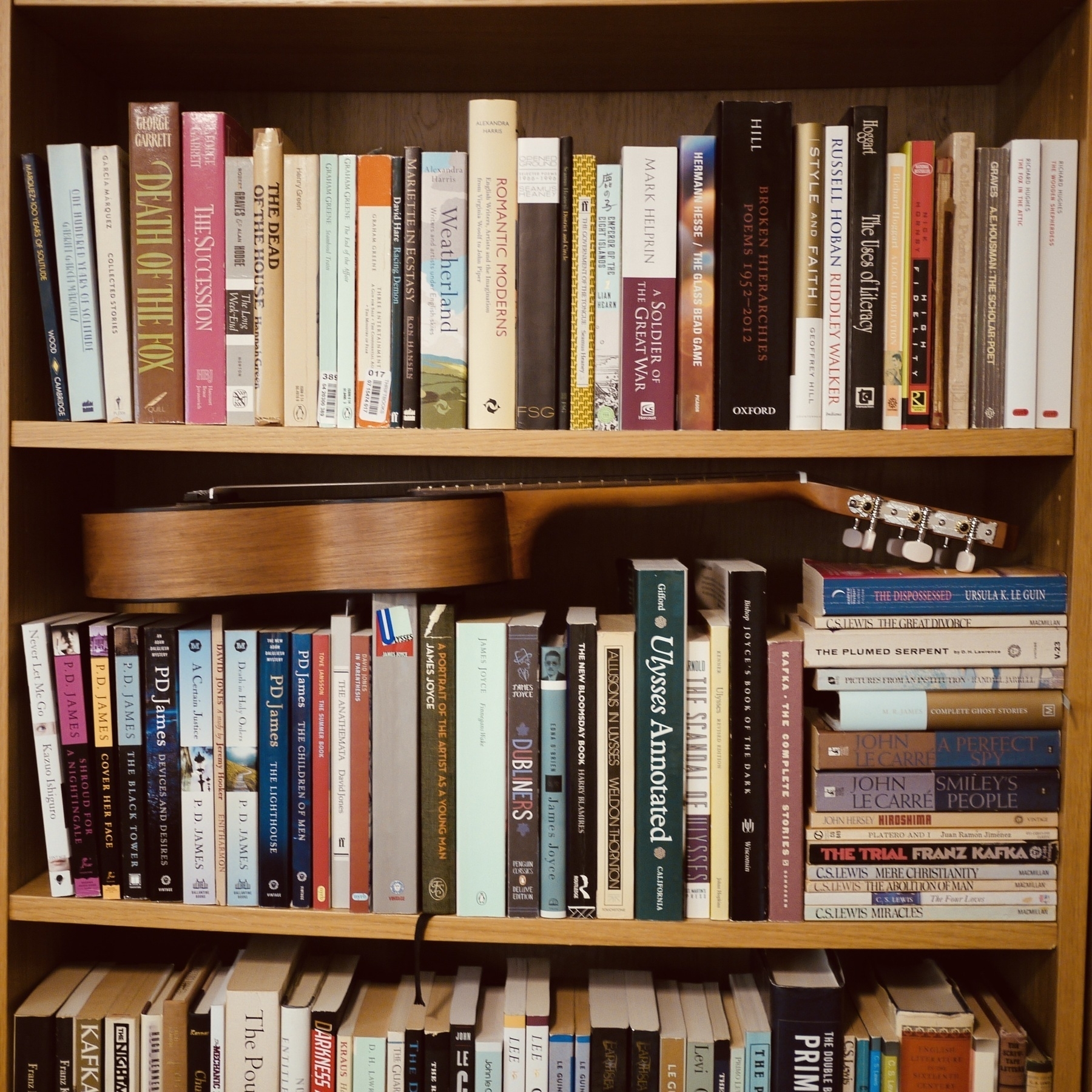
Currently reading: The Kindness of Strangers by Salka Viertel 📚
Ambersons
Last night, for the first time in decades, I watched The Magnificent Ambersons, and three points struck me with great force.
First: If Welles’s vision for the film had been realized, it would have been the single greatest work of art to elaborate and dramatize and even extend the argument of Leo Marx’s great 1964 book The Machine in the Garden — it would have offered the best available portrayal of the benefits and the costs, in equal measure, of the transformation of America from a pastoral world ruled over by a land-owning aristocracy to an industrial powerhouse. The scenes in the movie’s early minutes introducing Eugene Morgan’s horseless carriage could have been designed to illustrate Marx’s thesis: “Within the lifetime of a single generation, a rustic and in large part wild landscape was transformed into the site of the world’s most productive industrial machine. It would be difficult to imagine more profound contradictions of value or meaning than those made manifest by this circumstance. Its influence upon our literature is suggested by the recurrent image of the machine’s sudden entrance onto the landscape.” (Leo Marx, by the way, just last week died at the age of 102.)

Second: The film as it exists has a protagonist, but it’s not Joseph Cotten’s Eugene Morgan or Tim Holt’s George Minafer, but rather Agnes Moorhead’s Fanny Minafer — an “unnecessary woman,” a frustrated and embittered spinster who has no place in either of the book’s social worlds, being equally unvalued by the old aristocracy of land and the new industrial meritocracy. Fanny’s character arc culminates in a terrifying breakdown: this woman who has always been fighting off panic comes to the very end of her powers of self-control. Moorehead’s performance is staggering, and her fascinating and revelatory description of how Orson Welles directed her in that culminating scene, told to Dick Cavett in 1973, may be seen here. You really shouldn’t watch that scene out of the context of the whole movie, but if you absolutely must — or, better, if you have seen the movie but just need to be reminded — here it is. Gives me chills every time.

Which brings me — this is my third thought — to the infamous final scene of the movie, shot by the assistant director Fred Fleck while Welles was in Brazil. It’s just as terrible as everyone says it is, but there’s one way to make sense of it, even, strangely, to make it work. Bear with me for a moment.
Welles had shot what he wanted to be the penultimate scene of the movie, a meeting between Eugene Morgan and Fanny Minafer at the boarding house where she now must live. Stills from this scene remain:

It’s important to understand that Eugene has no idea that Fanny loves him, indeed has loved him for decades, and that the great bitterness of her life is her displacement, by the glamorous Isabel Amberson, from what she thinks of as her proper place in Eugene’s affections. As you can see from the shot above, she has recovered her composure — but at the cost of destroying her inner life. She is a shell of a person, and their meeting is both cold and fruitless.
In the concluding scene shot by Fleck, Eugene visits George Minafer in the hospital, and as he leaves George’s room is met by Fanny, to whom he speaks of the reconciliation between him and George, inspired, he says, by the spirit of his “one true love” — meaning Isabel, of course. Throughout this scene Fanny has a weirdly beatific look on her face, one that, I suspect, Moorehead was instructed by Fleck to wear: after all, doesn’t she now know that the immensely wealthy Eugene will take care of her beloved nephew, and probably of her also? That consoling knowledge, we are asked to presume, is sufficient to overcome her decades of pining for Eugene and her consequent resentment of Isabel.
Not bloody likely, I say.
So I prefer to understand the end this way: Fanny lies in her narrow bed in the crowded, dingy boarding-house in a bad neighborhood of what is now an industrial city, and she indulges in a fantasy. She imagines another life, the other fork of the road, one in which Eugene is reconciled to George, of course, but also, and more important, in which he finally sees that all along, Fanny was his own true love. She lies in her narrow bed, and dreams, and smiles. And her dream is what we see at the end of The Magnificent Ambersons.
lagniappe
Like Lincoln Michel, I have a soft spot in my heart for little literary magazines, and worry about their future. (For what it’s worth, I think the biggest problems afflicting little magazines stem from their having been co-opted into providing one particular service: publication credits for creative writing teachers.) I sometimes imagine an alternative career for myself in which I wrote only, or almost only, for such journals. I’m pleased to say that I have an essay called “Looking Westward” appearing in a forthcoming issue of Raritan.
Cormac McCarthy gives an interview to some high school students.
I love — love — uniform editions of authors’ books.
Ted Gioia’s case for super-vinyl … I dunno. I’d prefer to have an improvement in viny records that does not require me to buy expensive new equipment. Might that be possible?
Rowan Williams: “One thing that might be said in response to Patriarch Kirill is that neighbours have to be loved, not terrorised into resentful silence – a matter on which the God first acknowledged in Kyiv in 988 had a good deal to say.”
In a recent post I wrote about my suspicion of the metaphors people use to describe the sound of vinyl records; turns out that there’s a (sadly long-silent) Tumblr devoted to the absolute balderdash audiophile magazines spout.

Currently reading: Always Crashing in the Same Car: On Art, Crisis, and Los Angeles, California by Matthew Specktor 📚

Finished reading: Musicophilia by Oliver Sacks 📚
Those trees Texans call “mountain cedars”? They’re junipers. See?

“You have Putin’s Russia and Pushkin’s Russia,” Krielaars observed. To blame a whole culture, past and present, for a current political action implies that everything about that culture contributed to that action. If Germany succumbed to the Nazis, don’t listen to Beethoven; because of Mussolini, cancel Dante and Raphael; if you reject American actions in Vietnam, the Middle East, or anywhere else, no more Thoreau or Emily Dickinson. Could there be a better way to encourage national hatred than to treat a whole culture and its history as a unified whole, carrying, as if genetically, a hideous quality? [...]If Russian history teaches anything, it is that such “moral clarity” has no limits. If all right is on one side, then anything — literally anything — one says or does is justified. Indeed, to stop short of the most extreme measures is to indulge evil, which means risking the charge of complicity. When Stalin sent local officials quotas of people to be arrested, they responded by demanding still higher quotas. It was the safest thing to do to prove one’s loyalty. No one ever secured his position by calling for less severity to enemies. When everything is black and white, sooner or later everyone is at risk.
[caption id="" align=“aligncenter” width=“634”] Richard Cattermole, from Cathedral antiquities of England, vol. 2[/caption]
Richard Cattermole, from Cathedral antiquities of England, vol. 2[/caption]
beyond grumpiness
I suspect you have noticed that many old people are grumpy. I think the explanation for such widespread grumpiness is fairly simple.
Perhaps you’ve been in a relationship — with parents or siblings or spouses or even friends — in which the little foxes spoil the grapes. It’s not the big foul acts or horribly cruel words that do you in, it’s the slow drip drip drip of little annoyances that become over time a vast sea of frustration. Surely you’ve been there? You become exasperated by someone’s passing comment and when they are genuinely puzzled by your anger over so trivial a matter, you try to explain (apologetically, penitently, I hope) that it wouldn’t be a problem if this thing had happened once but it has happened a thousand times. It’s the repetition that kills you.
I think that’s how it is for old people — not only on a personal but also on a cultural level — and I speak as someone who is, I suppose, entering that territory. Take for instance the debates over the last few years in the academy about whiteness, representation, cultural appropriation, the Western canon, the classroom as a venue for social justice, etc. etc. These are precisely the arguments that roiled the academic humanities in the late 1980s and early 1990s. The vocabulary can differ slightly, but otherwise we who were alive and alert then know the script. Heck, the arguments of thirty years ago often echoed arguments of a quarter-century earlier, those that arose in the student-protest era of the late Sixties and early Seventies.
This is not to say, of course, that everything is the same. For instance, in the Sixties the student protesters wanted to dismantle the existing institutional structures, whereas today’s protesters usually just want management to take their side. But the overall terms of engagement are remarkably similar, and that’s frustrating for an older person, for the same reason (ironically enough) that it’s frustrating to hear grandpa tell the same story over and over again. It’s a maddening repetition — the first time as farce and the second as farcier.
And then you reflect that not only has no one learned anything from the previous instantiation of these debates, most of the people shouting at each other today don’t even know that the debates took place. They’re mouthing the words of their predecessors — in some cases they’re even mouthing the words of their earlier selves — but the relentless presentism of our social media environment creates what I have called the Ministry of Amnesia. You can’t learn from the past if you don’t know what happened in it. So yeah, I’m gradually turning into a grumpy old man. Because nobody learns anything.
The only thing that anybody knows how to do when a new conflict arises, and this is just as true of the conflict in Ukraine as it is of any other, is to insist that these tragic events only prove my politics. That’s it, that’s all anybody has got. There are no circumstances, no matter how dreadful, sufficiently dramatic to make anyone fall off of their hobbyhorse. (That site hasn’t been updated in a decade, because what would be the point?)
So they were as far as I can tell two ways to go. One is increasing frustration and the other is detachment. Or … perhaps I should say that there are three possible responses: frustration, nihilistic detachment, and the detachment that seeks peace.
These are precisely the concerns of T. S. Eliot’s valedictory poem, “Little Gidding,” in which he makes a version of my threefold distinction:
There are three conditions which often look alike Yet differ completely, flourish in the same hedgerow: Attachment to self and to things and to persons, detachment From self and from things and from persons; and, growing between them, indifference Which resembles the others as death resembles life, Being between two lives — unflowering, between The live and the dead nettle.Of course, “attachment” is not the same thing as frustration — but frustration arises from attachment. If you didn’t care you would walk away or tune a person out rather than hanging around to be an asshole. You would be indifferent (and maybe the targets of your frustration would prefer that). A little earlier in “Little Gidding,” when Eliot encounters
some dead master Whom I had known, forgotten, half recalled Both one and many,he learns what that particular variety of attachment leads to:
“the conscious impotence of rage At human folly, and the laceration Of laughter at what ceases to amuse. And last, the rending pain of re-enactment Of all that you have done, and been; the shame Of things ill done and done to others' harm Which once you took for exercise of virtue. Then fools' approval stings, and honour stains.”Is there a way to avoid this dark fate? Yes:
“ From wrong to wrong the exasperated spirit Proceeds, unless restored by that refining fire Where you must move in measure, like a dancer.”Until you submit to that refining fire, your frustration, your impotent rage — no matter how correct you are — does nothing to help others and brings only misery to you. That your frustration has a legitimate cause means nothing when seen from this perspective. So I’ve been thinking about this passage regularly for more than a decade now — since I wrote my treatise “Against Stupidity” a decade ago, a treatise in which I argue for the canonization of Jonathan Swift. (I still advocate that elevation, by the way.)
And there’s a passage from another work that I often think of in this context: Wendell Berry’s Jayber Crow. It involves an encounter between Jayber, the barber in the small town of Port William, and a neighbor named Troy Chatham, who sees the world rather differently than Jayber does. In this scene the men in Jayber’s barbershop discuss the then-current protests against the war in Vietnam.
One Saturday evening, while Troy was waiting his turn in the chair, the subject was started and Troy said — it was about the third thing said — “They ought to round up every one of them sons of bitches and put them right in front of the damned communists, and then whoever killed who, it would be all to the good." […]That’s quite a sting in the tail of that anecdote.It was hard to do, but I quit cutting hair and looked at Troy. I said, “Love your enemies, bless them that curse you, do good to them that hate you.”
Troy jerked his head up and widened his eyes at me. “Where did you get that crap?”
I said, “Jesus Christ.”
And Troy said, “Oh.”
It would have been a great moment in the history of Christianity, except that I did not love Troy.
The first step, I guess, is to know what the Bible teaches, what the Lord commands of us. The second step is to understand that if I can shame and silence my neighbor with a Bible verse but have not love, I am no better than a clanging cymbal. The third step, the terrifying step, is to hold my tongue until I can love the Troy Chathams in my life. Else I will end up in the condition prophesied for Eliot by his master’s admonitory ghost.
It’s a hard path to walk, this Way of avoiding both indifference and “the conscious impotence of rage / At human folly.” But the hard path is the only real Way. (All the others circle back on themselves.) So I try every day to follow it. I don’t think I could manage even that if I did not have an Advocate to accompany me, to encourage me, and to guide me.
Leah Libresco Sargeant, in a post called “Defining Human to Leave Out Almost Everyone”:
Wrinkles are what a person looks like if they’re lucky enough to grow old. Physical weakness is part of who we are at the beginning and end of our lives, and, especially for the chronically ill, for large parts of the middle. And, as Richard John Neuhaus points out in Death on a Friday Afternoon, we can’t strike the normal progression of life out of our definition of humanity.It has always struck me as puzzling that some people say that an embryo or a very small fetus does not look like a human being. That is exactly what a human being looks like when it is two weeks or two months old. It is what you looked like and what I looked like.
The restitution narrative treats suffering and dependence as an unnatural state—a privation of something that we rightfully have. But (to paraphrase Hamlet) the thousand natural shocks are what flesh is heir to. The lively health we experience for a time as teenagers and in our early twenties is not the way our bodies will work for the rest of our lives. It is not what we had at the beginnings of our lives. We do better with a supportive culture for all persons and capacities, rather than an expectation we’ll sustain that sort of strength forever.
Mars Hill Audio
One of my favorite experiences is to be interviewed by Ken Myers for Mars Hill Audio. Ken is both a great interviewer and a great editor of audio, so he always makes me sound smarter than I am. A wondrous gift. What he does is absolutely unique: an audio journal filled with in-depth interviews, thoughtful meditations on culture by Ken, lots of music … a whole world of art and ideas. It’s unique and irreplaceable. I earnestly, passionately encourage you to subscribe. (By the way, MHA has a really excellent mobile app, for iOS and Android.)
The immediate prompt for this post: I’m in the new issue, talking with Ken about Breaking Bread with the Dead.
Doubt may be considered one of the consequences of original sin, but it also protects us against its more deleterious effects. It is important for us to be uncertain about the deep motives for our own deeds and the grounds of our convictions, since this is the only device that protects us against an old justifying fanaticism and intolerance. We should remember that the perfect unity of man is impossible, otherwise we would try to impose this unity by any means available, and our foolish visions of perfection would evaporate in violence and end in a theocratic or totalitarian caricature of unity which claimed to make the Great Impossible an actuality. The greater our hopes for humanity, the more we are ready to sacrifice, and this too seems very rational. As Anatole France once remarked, never have so many been murdered in the name of a doctrine as in the name of the principle that human beings are naturally good. […]There are reasons why we need Christianity, but not just any kind of Christianity. We do not need a Christianity that makes political revolution, that rushes to cooperate with so-called sexual liberation, that approves our concupiscence or praises our violence. There are enough forces in the world to do all these things without the aid of Christianity. We need a Christianity that will help us move beyond the immediate pressures of life, that gives us insight into the basic limits of the human condition and the capacity to accept them, a Christianity that teaches us the simple truth that there is not only a tomorrow but a day after tomorrow as well, and and that the difference between success and failure is rarely distinguishable. We need a Christianity that is not gold, or purple, or red, but grey.
— Leszek Kołakowski, "Can the Devil Be Saved?" (1974)
Professional musical instrument storage and display

unresonant
Every serious acoustic guitarist will have thoughts about how a guitar’s body — its shape, its bracing, the woods from which it is made, etc. — creates its sound. As well they might! The funny thing is, players of electric guitars talk the same language — even though, as this video – by Aaron Lanterman, a professor of electrical engineering at Georgia Tech – demonstrates, the sound made by an electric guitar when amplified has almost nothing to do with its body.
The sound an electric guitar makes when amplified is generated by the response that its pickups make to the movement of its strings, and people naturally assume that pickups hear a version of what they themselves hear. But pickups don’t hear at all, because pickups are not microphones. They electromagnetically detect mechanical vibrations, and that’s all they do. As the Wikipedia page just linked says: “The permanent magnet in the pickup magnetizes the guitar string above it. This causes the string to generate a magnetic field which is in alignment with that of the permanent magnet. When the string is plucked, the magnetic field around it moves up and down with the string. This moving magnetic field induces a current in the coil of the pickup as described by Faraday’s law of induction.”
Lanterman explains all this wonderfully well. One interesting thing that I didn’t know before listening to his video but should have: You’ll sometimes hear guitarists talk about the “resonance” of a solid-body electric guitar, but electric guitars only have solid bodies in order to reduce resonance. A hollow-body guitar does indeed resonate, and resonate in ways that can interfere with the pickups’ ability to detect the vibration of the strings. That’s why so many electric guitars are made from a chunk of thick heavy wood: a chunk of thick heavy wood doesn’t resonate when the strings are plucked.
This doesn’t mean that different electric guitars don’t sound different — they do. But, if they’re solid-body guitars, the differences in sound don’t arise from the composition or shape of the body or (heaven knows) the paint or the varnish thereupon.
Pommes de Terre Persillade. IMO, the best way to eat potatoes.




